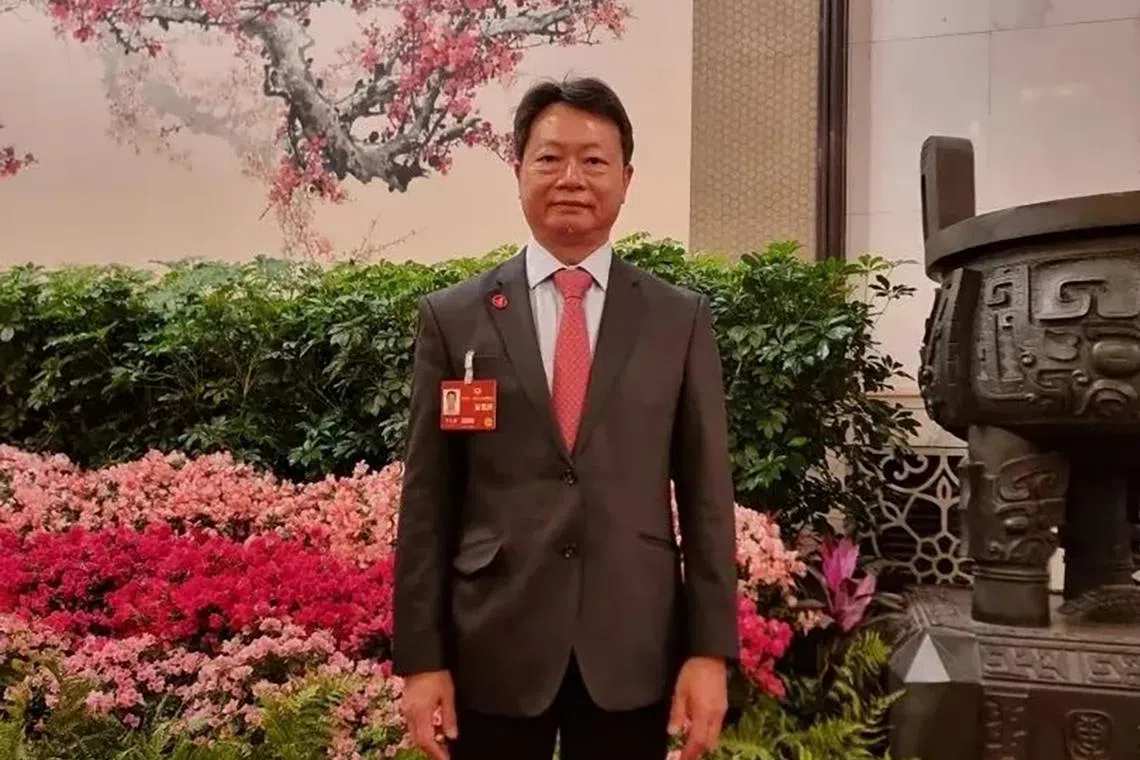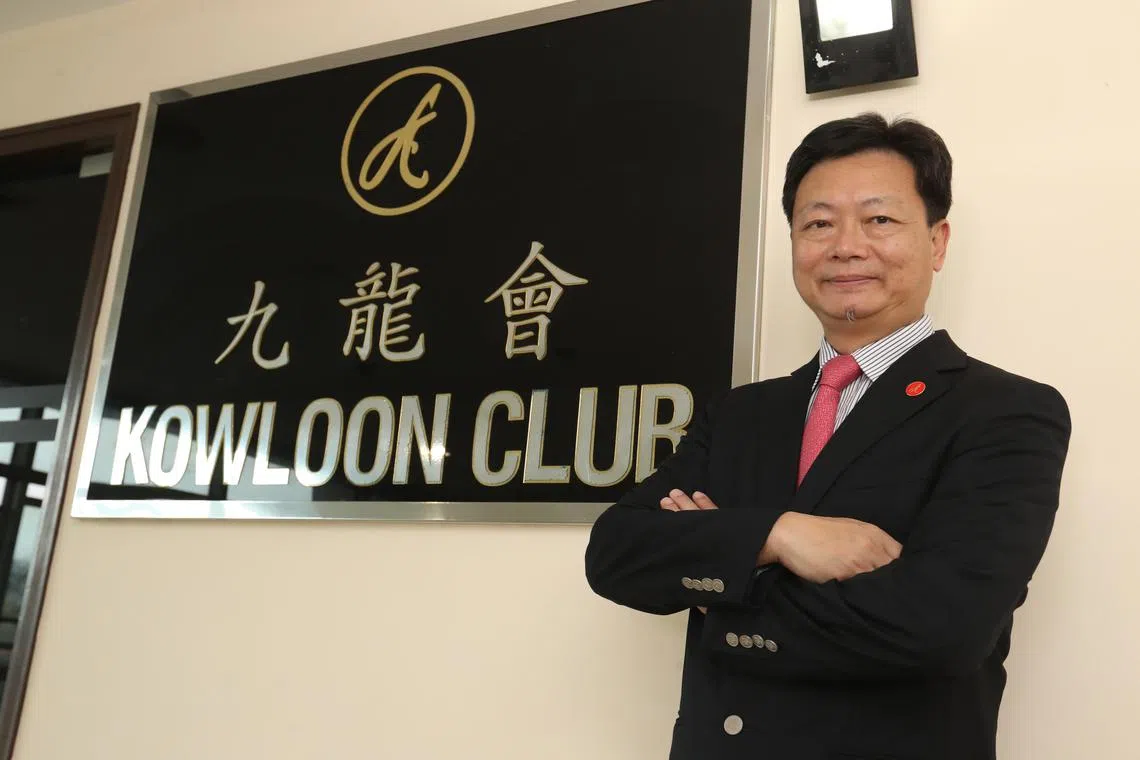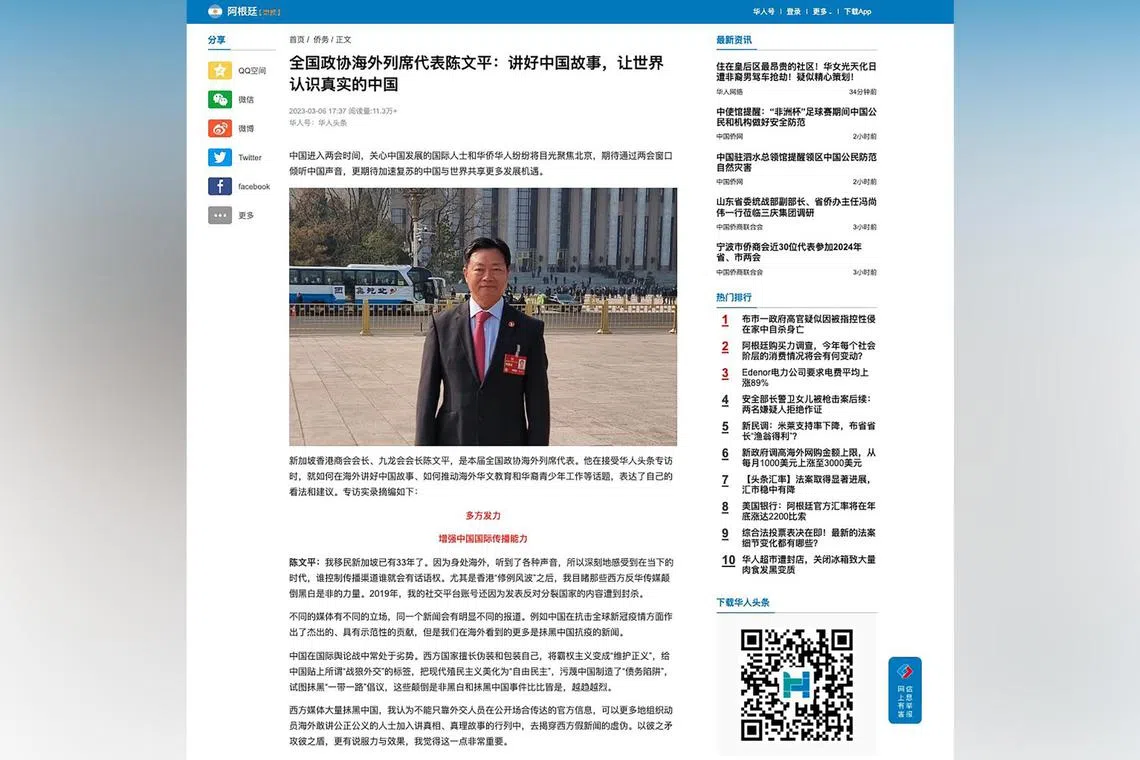Line crossed under foreign interference law when people promote foreign political interests: Experts
Sign up now: Get ST's newsletters delivered to your inbox

Mr Philip Chan Man Ping, a naturalised Singapore citizen, was served notice that the authorities intend to designate him a politically significant person.
PHOTO: GLOFORE
SINGAPORE – Individuals may express strong feelings about a foreign entity, but they cross the line under Singapore’s foreign interference laws when their behaviour veers into the political realm, experts said.
On Feb 2, a Hong Kong-born businessman became the first person to be dealt with under the Foreign Interference (Countermeasures) Act (Fica),
Mr Philip Chan Man Ping served notice that the authorities intend to designate him a politically significant person.
Mr Chan was assessed to have shown susceptibility to being influenced by foreign actors, and a willingness to advance their interests, the Ministry of Home Affairs (MHA) said, without naming any foreign entity.
His activities were also assessed to be directed towards a political end in Singapore, MHA added.
The Straits Times had reported that Mr Chan, managing director of several real estate investment firms, was invited to attend China’s annual Two Sessions parliamentary meetings
He was among 30 such representatives from around the world invited by the Chinese People’s Political Consultative Conference (CPPCC), an advisory body to the Chinese government.
In 2014, Chinese state media outlet Global Times quoted a representative from the CPPCC National Committee as saying that overseas representatives need to have “expertise in a certain sphere, have the capability to participate in politics, stay influential among overseas Chinese, and most importantly, love China”.
Mr Barry Desker, a distinguished fellow at the S. Rajaratnam School of International Studies (RSIS), said that in taking part as an overseas Chinese representative of the CPPCC, Mr Chan represented that Singapore is a “Chinese constituency in such Chinese parliamentary proceedings”.
“This is totally unacceptable,” said the former diplomat, who added that Mr Chan appears to have used his appointments to advance Chinese interests in Singapore.
Mr Benjamin Ang, senior fellow and head of the Centre of Excellence for National Security at RSIS, said an ordinary person in Singapore who does business overseas or has strong feelings towards other countries would not be designated a politically significant person.
Yet an influential person would more likely be a target of foreign influence and be of public interest, especially if he or she has given speeches and interviews or written articles that promote the political interests of a foreign entity, added Mr Ang.
“Political ends, as defined in the Act, are different from saying positive things about a country or a culture, which would not be covered by Fica,” he said.
Dr Shashi Jayakumar, executive director of geopolitical risk consultancy SJKGeostrategic Advisory, agreed, saying: “My reading of what our leaders have said in the recent past is that one can trace, and be proud of, one’s ethnic roots and ancestry – be it from China, India or any other nation – and indeed maintain these links.
“But, in my view, it is not acceptable, based on these links, to develop a current loyalty to that nation, and to advocate the interests of that nation, simply based on ancestry or ethnicity if that loyalty supersedes the sense of being Singaporean and supersedes the national interests of Singapore.”

Mr Chan was assessed to have shown susceptibility to being influenced by foreign actors, and a willingness to advance their interests, the Ministry of Home Affairs said.
PHOTO: LIANHE ZAOBAO FILE
Dr Jayakumar added that while the authorities have spelt out that Mr Chan’s activities were assessed to be directed towards a political end, the line in which a person can become a designated politically significant person need not be spelt out in minute detail.
“This is not least given that state actors attempting to influence polities, including our own, would be watching our countermeasures closely, and would of course want to be able to skirt the line if the authorities attempted to delineate it too precisely,” he said.
During a parliamentary debate to pass Fica into law in October 2021,
The examples he cited of influence operations included a former Australian senator, who in 2017 was found to have received donations from a source with ties to the Chinese government. This former senator then advocated China’s position on the South China Sea.
In another case, a chairman of a European Union foreign friendship group received kickbacks from a foreign government and later voiced support for its policies.
Mr Shanmugam noted that this has also happened in Singapore, highlighting the case of academic Huang Jing.
In 2017, Dr Huang had his permanent residency cancelled for collaborating with foreign intelligence agents.

Mr Chan believed in uniting overseas Chinese to tell China’s story.
PHOTO: INTERNET
RSIS’ Mr Ang noted that in Mr Chan’s case, the businessman is not being detained or charged.
“If he remains a politically significant person, then he should be able to carry on as usual, with the added requirement to disclose his foreign affiliations, foreign arrangements and foreign funding,” said Mr Ang.
As a designated politically significant person, Mr Chan would have to make yearly disclosures to the authorities of political donations of $10,000 or more that he has received and accepted, and declare his foreign affiliations and any migration benefits.
Given the state of geopolitics, Dr Jayakumar said he does not think this would be the last occasion Fica is invoked against an individual.
“Nor do I think that it is only one actor attempting to do these things to us, given how various actors in this era of geopolitical contestation would want not just to understand us but to cultivate and condition us too,” he added.
On Mr Chan being served notice of the authorities’ intention to designate him a politically significant person, Mr Ang said: “It appears that this kind of action would be taken if there was a risk from any overseas entity, whether it be a company, non-governmental organisation, business association or government body, from any country.”
He added: “Over the coming years, if Fica and the designation of politically significant persons are used only in cases of serious risk and public impact, then it will show that Singapore remains open to foreign business but guarded against foreign interference.”



